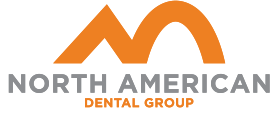Dentists in Western Pennsylvania are worried about the pandemic’s impact on people’s dental health, saying there’s no good reason for delaying check-ups, cleanings or more serious procedures.
“It’s troubling to hear that patients have that perception and are feeling that anxiety,” said Andrew Matta, co-founder and chief medical officer of the North American Dental Group and a practicing dentist in New Castle. Matta pointed to the documented connection between oral health and overall health.
“There are some studies that are showing that having proper oral health can actually decrease risks if somebody were to get coronavirus,” Matta said.
A recent study showed a majority of adults said they’re OK with skipping dental check-ups if it means reducing the risk of catching coronavirus.
A website called NextSmileDental.com, which provides resources on dentures, conducted a survey of 4,500 patients in Pennsylvania. It said 65% have delayed routine check-ups due to coronavirus fears. Some even said they would delay seeking medical treatment for a serious issue if it wasn’t causing them pain.
Dr. Jim Tauberg, president of the Pennsylvania Dental Association, said dental medicine is essential health care and patients who put it off are asking for trouble.
“Many things that occur from the dental side can be painless, can be silent problems until they actually become so severe they become more symptomatic. Now the problem is magnified and sometimes made more difficult or impossible to treat,” said Tauberg.
So, what do dentists tell patients who say they are too afraid to come in?
“What I tell them is the truth and that there have been no (covid) outbreaks in the dental community in the entire world,” said Dr. Eric Smiga of Pittsburgh Oral Surgery. “Although I can’t scientifically give them a reason for that, I can confidently look at them and say, ‘Hey, we’re safe.’ We have thousands upon thousands of patients coming through the doors in the state of Pennsylvania and we have not been seen by the Pennsylvania Department of Health as a group that can cause the coronavirus to surge.”
The precautions dentists are taking include the use of protective equipment and screening measures. The only time the bubble is compromised, according to Tauberg, is when someone is outside the bubble and gets covid.
“For example, if you had an employee who goes to a party on their own in their own private world and that’s how they get coronavirus, that’s a little tougher to deal with,” Tauberg said. “Even then, everybody’s wearing masks and gowns and disinfecting and again, it still has not been shown that any transmission to staff or patients has occurred in a dental office.”
Some dental practices are conducting coronavirus testing.
“Our practices have incorporated testing team members and patients on a regular basis,” said Matta. “So, it’s really just trying to dispel the individual’s fear and letting them know the risk of getting the virus in a dental practice is miniscule. I think you have a higher risk of getting it at the grocery store or any general public setting.”
For some patients, all the reassurances in the world are not enough and many people are simply paralyzed with fear.
“I think the fear is stopping people from doing a lot of normal, needed activities like dentistry, going to their doctors, getting their hearts checked,” said Smiga. “There is a whole group of patients and a lot of elderly patients that are just putting that off and putting themselves at risk. It’s a real problem.”
But an equally serious problem appears to be on the horizon. Dentists appear to be facing a potential onslaught of patients once the pandemic begins to ease. Smiga acknowledges that a lot of people are waiting until after the pandemic dies down to schedule an appointment.
“The interesting part in Pennsylvania is because we were shut down early in the pandemic for over two months, dentists are already facing an onslaught of patients,” Smiga said. ”We have patients who are on treatment plans who’ve yet to be treated because of their fears.”
Tauberg said many dentists are already behind because of social distancing rules that limit the number of patients who can be in an office, leaving most dental offices operating at about 75% capacity.
“You can’t do 100% capacity. It just doesn’t happen because you can’t have multiple people in the office at the same time. In fact, we hardly use our waiting room anymore,” said Tauberg. “So, whenever the time comes that more people will be coming in, I think it’ll be a sad but happy dilemma.“
Matta expressed concerns about his ability to handle a sudden overflow of patients.
“You can only see so many individuals through an office in a particular period of time,” said Matta. “So, when you have this effect of individuals who are ready for their care and their regular routine checkups, along with people who have delayed care and now are trying to get in the system, it can create even further problems.”
Paul Guggenheimer is a Tribune-Review staff writer. You can contact Paul at 724-226-7706 or pguggenheimer@triblive.com.
Article author: PAUL GUGGENHEIMER
Originally published in: TribLive
